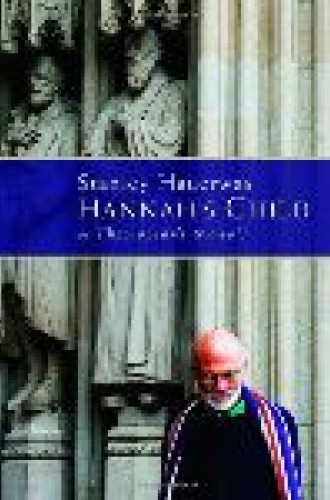Take and read
De La Torre writes “to assist the churchgoing layperson in understanding the complexity of the current immigration debate.” His book does far more than exhibit many of the complexities and calumnies of the politicized debate about immigration in the U.S. It offers powerful first-person testimonies from activists and especially from migrants. One migrant says that during his border crossing, the stars in the clear desert sky “reminded me that God had not abandoned me.” Trails allows the church in the U.S. to see and hear neighbors whom we must not abandon, but love.
Every decade or so, it pays to be introduced to Christian ethics all over again. A strong introduction can lead us to question what we’ve taken for granted, notice what we’ve failed to see and connect what has seemed disjointed. This book does all that and more. Wells and Quash present a stunningly clear account of Christian ethics’ sources; an insightful typology of approaches—universal, subversive and ecclesial; and an irenic display of diverse responses to politics and relationships. It’s not a book of answers, but reading it is an apprenticeship in how to ask the right questions and with whom to seek the answers.
Because West and Hauerwas have been powerfully gifted to understand and teach the gospel, they have been particularly potent voices in our moral landscape for more than 30 years. Neither one is finished working and witnessing, but both have paused to take stock of the journey thus far. The conjunctions and disjunctions between these books can be equally instructive. West, for example, is consistently confident about where he fits within Christianity, whereas Hauerwas narrates a lifelong wrestle with becoming Christian. Yet the two authors speak in nearly identical terms about facing death with gratitude for the lives they’ve been given. Each author finds an authentic voice to narrate how conviction and circumstance converged to shape his life. West and Hauerwas invite us to observe and interrogate the commitments and communities and stories that situate our own moral lives. That is necessary work for everyone, memoirist or not.
Because most church talk about just war is lip service to a poorly understood, regularly incomplete and inconsistently ap plied checklist, we need Bell’s brilliant book. It is equal parts clear exposition, intellectual heft and relevant example. Now that President Obama has asked for new thinking about just war in making his acceptance speech for the Nobel Peace Prize, we should consider Bell’s thesis that the Christian tradition of just war is not a public policy checklist for rulers, but a stringent form of discipleship for Christ’s church. Just war as Christian discipleship is centered in Christian community, shaped by Christian practice and armed with Christian virtue.
The Ten Commandments once constituted a moral mountain within the church’s teaching, worship and preaching. Now they are more likely to appear in highly politicized debates about displays in public spaces than in the moral shaping of Christian life. Yet a genuinely Christian ethic can no more avoid these commands than it can avoid the One who claims to fulfill them. Happily, Miller offers a monumental book worthy of its subject. All 400 pages discuss how the Decalogue shapes the life of the people of God, and an appendix explicitly treats “the ethics of the commandments.”
Some of ethics’ enduring topics are ordinary blessings rather than perennial problems. Family is one, even if we are currently tempted to switch it to the problematic side of the ledger. Rubio’s book reminds us that Christian life is mostly about ordinary goodness and mundane dilemmas, often negotiated in the context of family. It nicely displays family as neither a romantic heaven nor a private haven, but as a domestic church with a social mission. The book’s second half is a remarkably creative reflection on five practices of family that conjoin the personal and social: sexual fidelity, eating, tithing, serving and prayer.
If you think food is just a fad, try convincing your stomach of that. If you think eating is a far cry from the center of Christian ethics, remember that Jesus’ table was always a moral map. Among the many good books on good eating of late, Jung’s volume ripples with passion, connecting how we eat with how we feel. His thesis is that doing justice for the world’s hungry will bring us genuine contentment.
Pop culture is overrated as revelation. In the hands of a strong theologian like Jones, however, a pop-culture phenomenon like the Twilight series can do more than illuminate vampires and teenagers, two equally mysterious species. It can catalyze a rich conversation about ethical matters. Jones explores romance, desire, sex, love, family and meaning from her grounding in the gospel of Jesus’ bodily resurrection.
Likely you missed this amazing book, which looks like a graphic novel but tastes like strong communion wine. The authors intend “to provoke the Christian political imagination” by reading the Bible and church history as God’s ongoing mission to redeem the whole world through a particular people. Its examples and strategies for living oddly are meant to challenge Christians who equate the political with the governmental. These edgy New Monastics’ commitment to the urban poor challenges all of us who live comfortable Christian lives.















